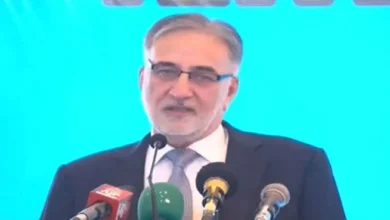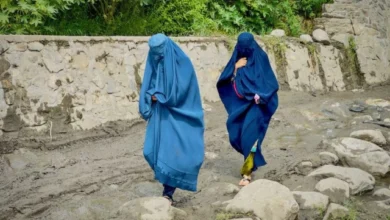Is Punjab Govt Serious To Curb Smog?
Provincial Govt imposes ban on burning crops and the emission of smoke-emitting vehicles to curb smog

LAHORE: For the past several years, smog has been a major problem in major cities of Punjab, especially for Lahore. Due to the burning of fields residues in Pakistan and India during the winter season, the entire province is badly affected by smog, which makes the lives of the citizens of Punjab miserable. Smog can spread respiratory illnesses in people, especially children and the elderly.
To curb the smog, the Punjab government has issued a notification and imposed ban on burning crops and the emission of smoke-emitting vehicles on the roads to curb smog.
An order issued by Punjab Relief Commissioner Babar Hayat Tarar said that to curb smog, smoke-emitting vehicles would be banned from entering the roads across the province till December 31.
According to the order issued by Babar Hayat Tarar, burning of crop Leftovers will also be banned in the province.
According to the order, action will also be taken against the smoke emitting industries and the Deputy Commissioners have been given powers in this regard.
It may be recalled that earlier the Punjab government had declared smog a disaster while medical experts have also expressed concern over the increase in corona during smog.
Meanwhile, the World Air Quality Report 2019 ranked Pakistan as the second most polluted country in the world with one of the highest concentrations of fine particulate matter (PM2.5) in the air.
The report stated that the poor air quality accounts for some 113,500 deaths in Pakistan annually while owing to pollution while it inflicts damage of whopping $ 12.51 billion to the environment every year.
The report also highlighted the reduction in the average age of Pakistani citizens by 2.5 years to depleting air quality.
Meanwhile, the Ministry of Climate Change (MoCC) has formulated the draft of the Pakistan Clean Air Programme 2020.
The draft cited the World Bank 2019 Report that the environmental pollution was the cause behind nine percent of deaths in the country every year.
The document referred to World Health Organisation (WHO) air quality guidelines as per which reduction of annual average PM2.5 concentrations from levels of 35 μg/m3, to the level of 10 μg/m3, could reduce air pollution-related deaths by around 15%.
However, PM2.5 concentrations in Pakistan have been recorded to be over 100 percent of the threshold annually with levels at 65 μg/m3. This level is the second-highest in the world.
The draft further stated that big cities of Pakistan including Karachi, Lahore, Peshawar, and Faisalabad have been placed in the list of most-polluted cities in the world.
The indoor and outdoor pollution causes 113,500 deaths every year while it also inflicts damage of $ 12.51 billion to the environment annually.
The document termed emissions from traffic congestions due to disorganised transportation, industrial and power plants running on fossil fuels, and improper burning of trash waste material as the major causes of environmental degradation in Pakistan.
It stated that as much as 71,000 tonnes of waste material was generated daily only in the metropolitan cities of Pakistan while there was no proper system to dispose of it efficiently.
It said that the Pakistan government had initiated several programmes to cover up environmental damages in the country with the introduction of Electric Vehicle Policy atop. Apart from this, the government has started importing Euro-V quality fuel.
It further highlighted that the government shuts down industrial units in 12 most-polluted districts during two months of the summer season to mitigate environmental pollution while the brick kilns across the country were being shifted to environment-friendly ZigZag technology.




10 Comments